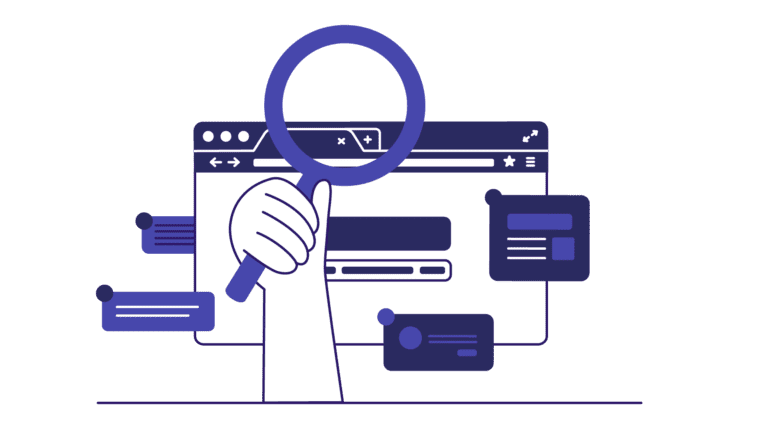The Importance of Understanding Who You Are Partnering With When Outsourcing
Outsourcing has become a key strategy for businesses looking to streamline operations and access specialized talent. However, selecting the right outsourcing partner is crucial for your company’s success. It’s not just about saving money—outsourcing should also help improve your efficiency and drive business growth. To make sure you’re partnering with the right company, it’s important to thoroughly evaluate the provider before committing. Here’s why understanding who you’re partnering with is essential.

1. Aligning with Your Company’s Culture and Values
When outsourcing, it’s more than just finding someone to complete tasks—it’s about integrating a new team into your business. This is why it’s vital to choose an outsourcing partner that aligns with your company’s culture and values. A company that understands your mission and ways of working will naturally blend in with your team and processes, minimizing friction.
Without this alignment, you may encounter miscommunication, differences in approach, or even dissatisfaction from your in-house team. When your outsourcing partner understands and shares your values, they’ll be more likely to deliver work that meets your standards.
Tip: Before signing a contract, have a detailed discussion about your company’s values. Ask how they ensure their team will reflect these values in their work.

2. Evaluating Capabilities Beyond the Surface
Rather than focusing only on credentials and past work, ask potential partners to explain their approach to handling specific challenges. How do they manage urgent projects or unexpected issues? Understanding their process gives you a better sense of how they will manage your specific needs, and whether they are truly adaptable.
For example, instead of relying solely on case studies, consider asking for examples of how they overcame a particularly difficult task. This gives you a clearer idea of their problem-solving approach and responsiveness, ensuring they can handle the complexities of your business.
Tip: Ask the outsourcing partner how they’ve navigated challenges for clients in the past, and use that information to evaluate their problem-solving skills.

3. Establishing Clear Communication Channels
Communication is at the heart of every successful outsourcing relationship. If communication is inconsistent or unclear, misunderstandings can occur, leading to delays and unmet expectations. Ensure your partner prioritizes timely and transparent communication, which includes regular updates and clear points of contact.
By establishing clear channels and setting expectations early on, you create a foundation for smooth collaboration. This will help avoid potential roadblocks and ensure both teams stay on the same page.
Tip: Agree on how often updates will be provided and what tools will be used to communicate. Regular check-ins can help to quickly identify and resolve any issues.

4. Prioritizing Data Security and Compliance
Data security is a top concern when outsourcing, especially as businesses deal with sensitive information and personal data. It’s critical to choose a partner that prioritizes compliance with relevant regulations such as GDPR or CCPA. You’ll want to ensure that they have strong data protection policies in place to protect your business and your customers.
However, achieving compliance doesn’t have to be complicated. Many tools, like Dropbox and Google Workspace, have built-in security features that help companies remain compliant. By using secure file-sharing platforms and encryption, your outsourcing partner can safeguard your data without creating extra hurdles.
Tip: Ensure that your partner uses trusted, secure tools for managing data. Ask them about the specific platforms they use to protect sensitive information and how they ensure compliance with regulations.

5. Planning for Long-Term Scalability and Flexibility
Your business needs will change over time, and your outsourcing partner should be flexible enough to adapt. Whether you’re planning to scale up or down, it’s important that your outsourcing partner can adjust resources and services to meet your evolving demands.
Look for a provider that can grow with you—whether that means expanding their team to handle larger projects or shifting focus as your business pivots. A partner who can adjust to your needs ensures long-term stability and eliminates the need to constantly search for new providers as your business evolves.
Tip: Choose a partner that is open to discussing how they can scale their services over time. This will ensure they can support your business as it grows.

6. Understanding the Fee Structure and ROI
It’s essential to fully understand how your outsourcing partner structures their fees. Some companies have hidden charges for things like additional revisions or project management. Make sure you clarify the full fee structure upfront, so there are no surprises later.
But beyond just the cost, focus on the return on investment (ROI). How will this outsourcing relationship contribute to your bottom line? A well-structured partnership should help you save time, improve efficiency, and ultimately drive profits.
Tip: Ask for a detailed breakdown of costs, and evaluate whether the partnership will deliver measurable value to your business.
